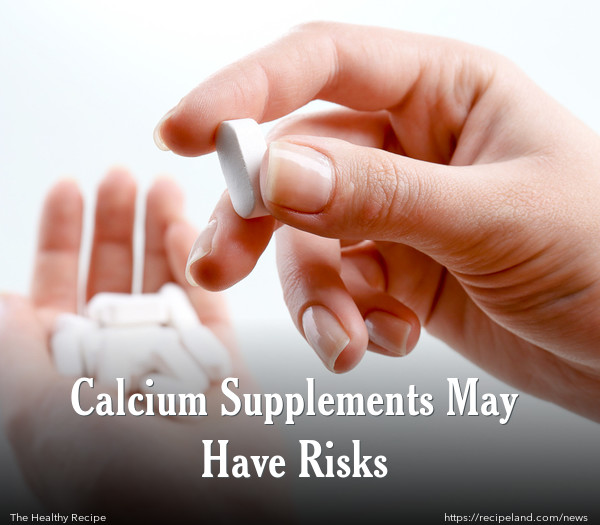Many people think that they need tons of supplements to get the right amounts of nutrients and minerals to stay healthy. But, too much of a good thing may put your health at risk. Find out more about calcium supplementation.
Although there are certain supplements that are commonly recommended by physicians and health care providers, it is important to understand how supplements work and how to choose which ones, if any, you are going to take.
Though some can be helpful, others may be harmful—or dosage may be important.
Calcium is one example of a commonly recommended supplement that you may or may not need. Many older women are told by their health care providers that they need to be taking a calcium supplement.
There are plenty of commercially available supplements that are offered, with the general intent of preserving bone density and preventing the development of osteoporosis.
However, the amount of calcium that is actually needed should be carefully examined.
A recent study showed that high calcium consumption can not only decrease the incidence of osteoporosis, which affects approximately 10% of women, but may actually increase the risk of hip fractures in older women.
The benefits provided from high levels of calcium supplementation may also increase the risk of developing cardiovascular disease—though consuming the same amounts through actual foods may help protect against this.
It has long been assumed that calcium supplementation helps protect teeth and bones, but current research is not supporting this assumption.
Another study, reported in the British Medical Journal, described that concluded that there was a nearly 140% increase in the risk of heart attack for those women and men taking calcium supplements, while similar intake via foods did not affect the risk.
After studying 24,000 participants, researchers recommended limiting calcium supplementation and encouraging increasing calcium intake through regular foods loaded with the mineral.
Another study, found in the JAMA Internal Medicine journal, reported that those who take more than 1000mg of calcium in supplement form daily can have a 20% increase in the risk of developing heart disease, or dying from a heart attack.
Because of the quick burst of calcium that occurs in the blood following intake of the supplement, arteries can more easily become hardened—or calcified—which can be dangerous.
Calcium supplements also interfere with the uptake of nutrients available from other foods, which can affect how a person gets other nutrients. Kidney stones may also be formed when calcium supplementation is too high, leading to dangerous kidney problems.
Prostate cancer has also been connected with excessive use of calcium supplements, according to the National Institutes of Health. Some of the concerns reported may be related to the quality of the ingredients in the calcium supplements, as some have shown lead contamination as well as ingredients that are not properly labeled.
Calcium supplement pills are not the only way that you might be ingesting calcium supplements. Today’s supermarket shelves are filled with many foods that have added calcium, including breakfast cereals, orange juice, bread, crackers and many other regular foods. When you consume these foods, you may be inadvertently taking in far more calcium than you realize.
Getting enough calcium in your diet through regular foods is not difficult, if you make the right choices. To keep your bones and teeth healthy, make sure that you include plenty of dark leafy greens, dairy products, salmon and sardines in your diet.
You need to get about two servings per day of dairy in order to get enough calcium. Weight bearing exercise, as well as vitamin D, can also help increase the calcium absorption into your body, helping your bones, too.
Although there are plenty of supplements that may be necessary for good health, calcium supplementation should be done very carefully, to minimize the risks and potential negative effects.
SOURCES: https://chriskresser.com/calcium-supplements-why-you-should-think-twice; Image courtesy of anankkml / FreeDigitalPhotos.net










Comments